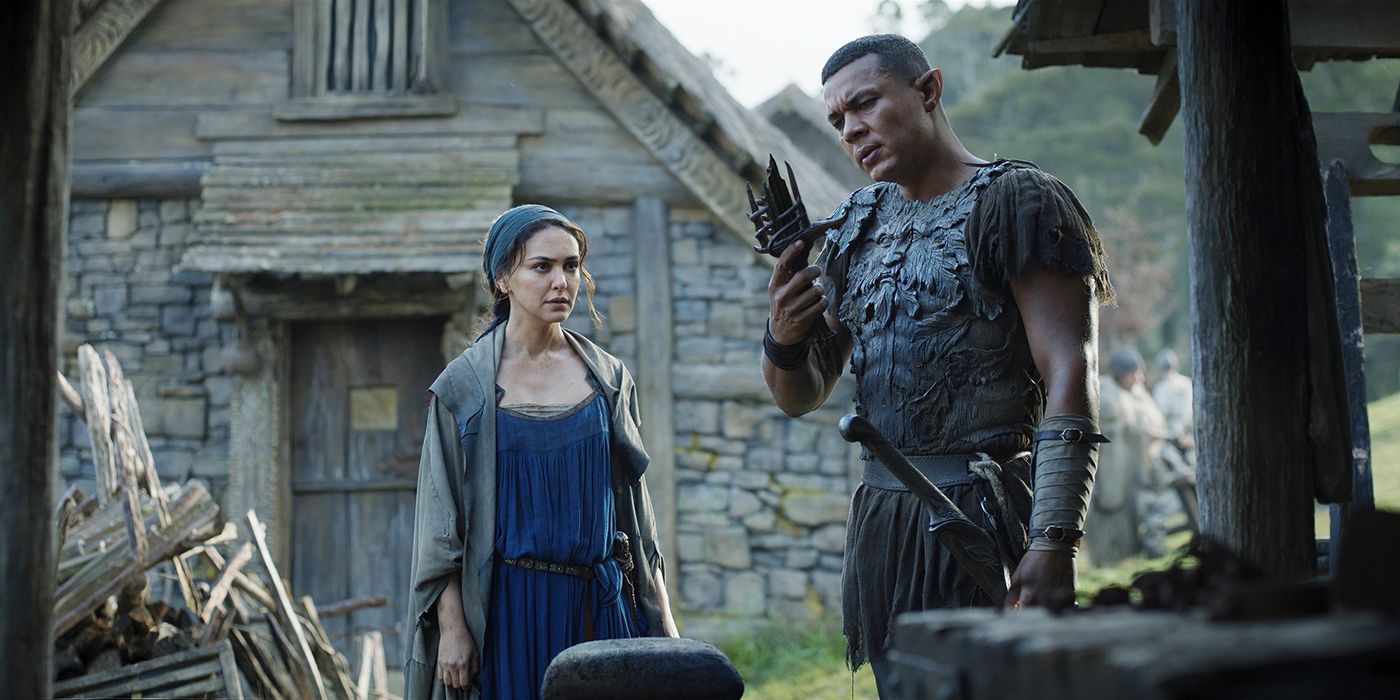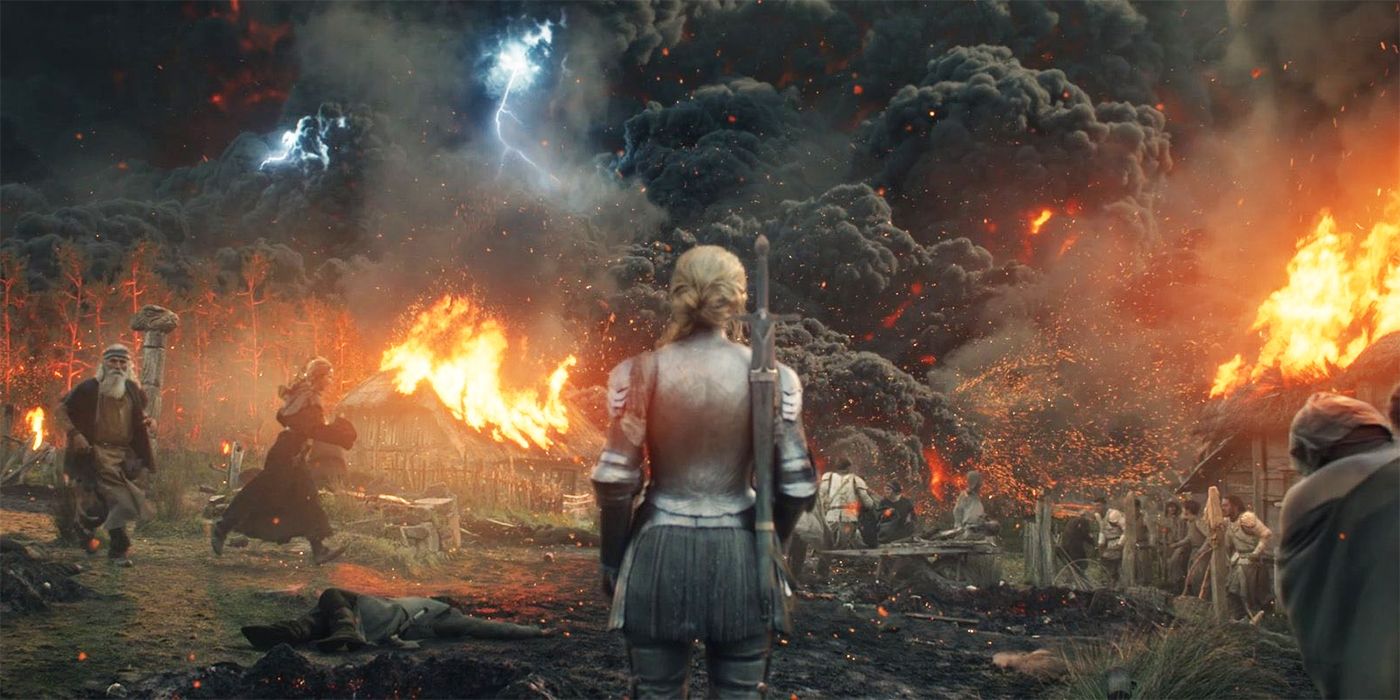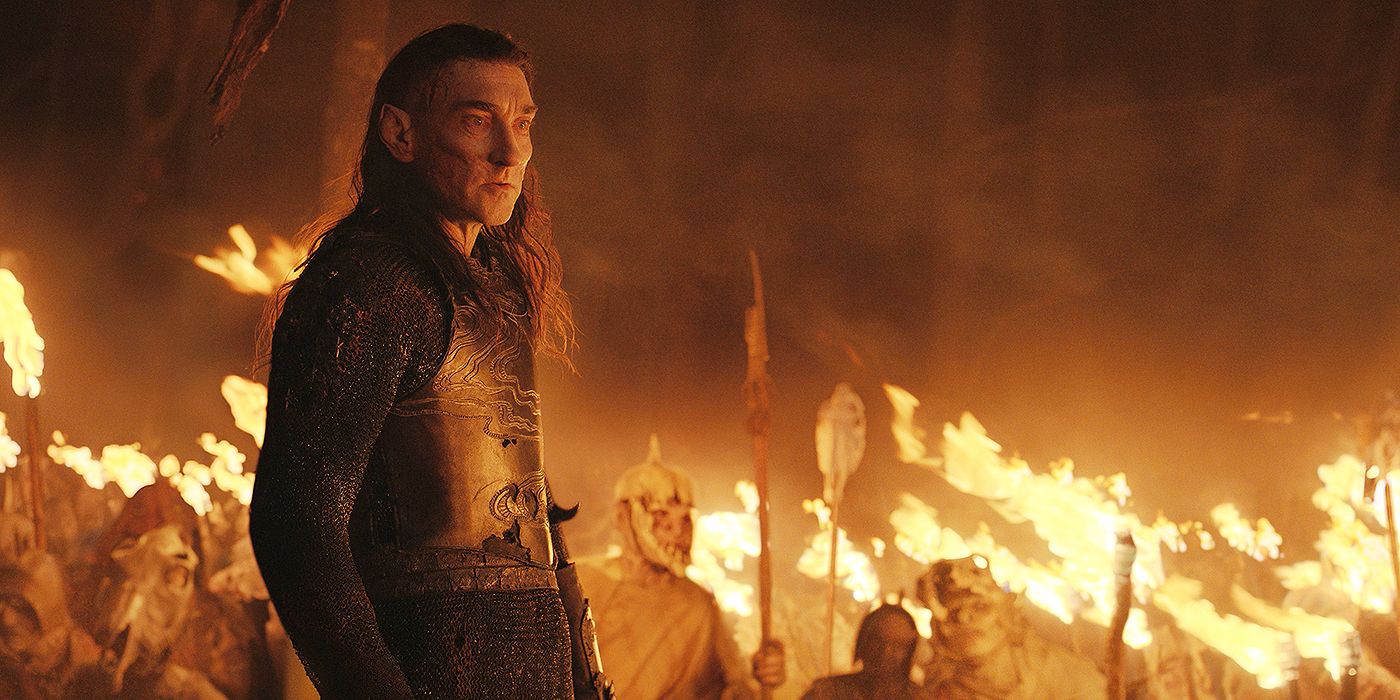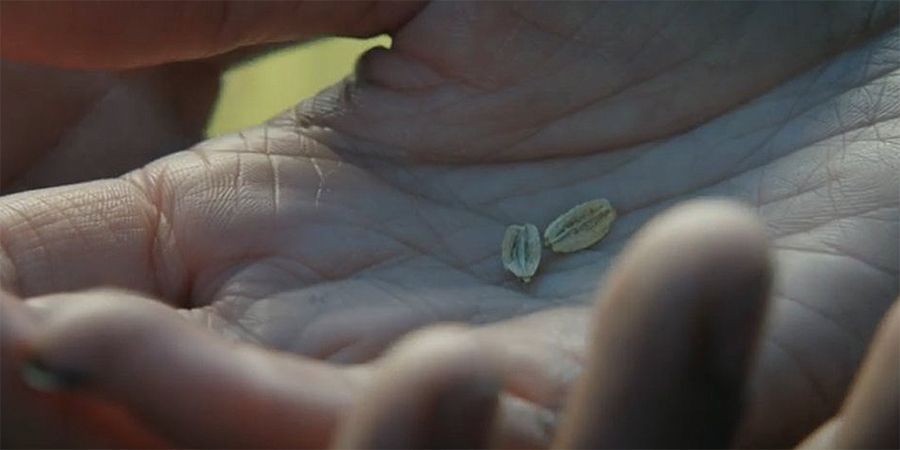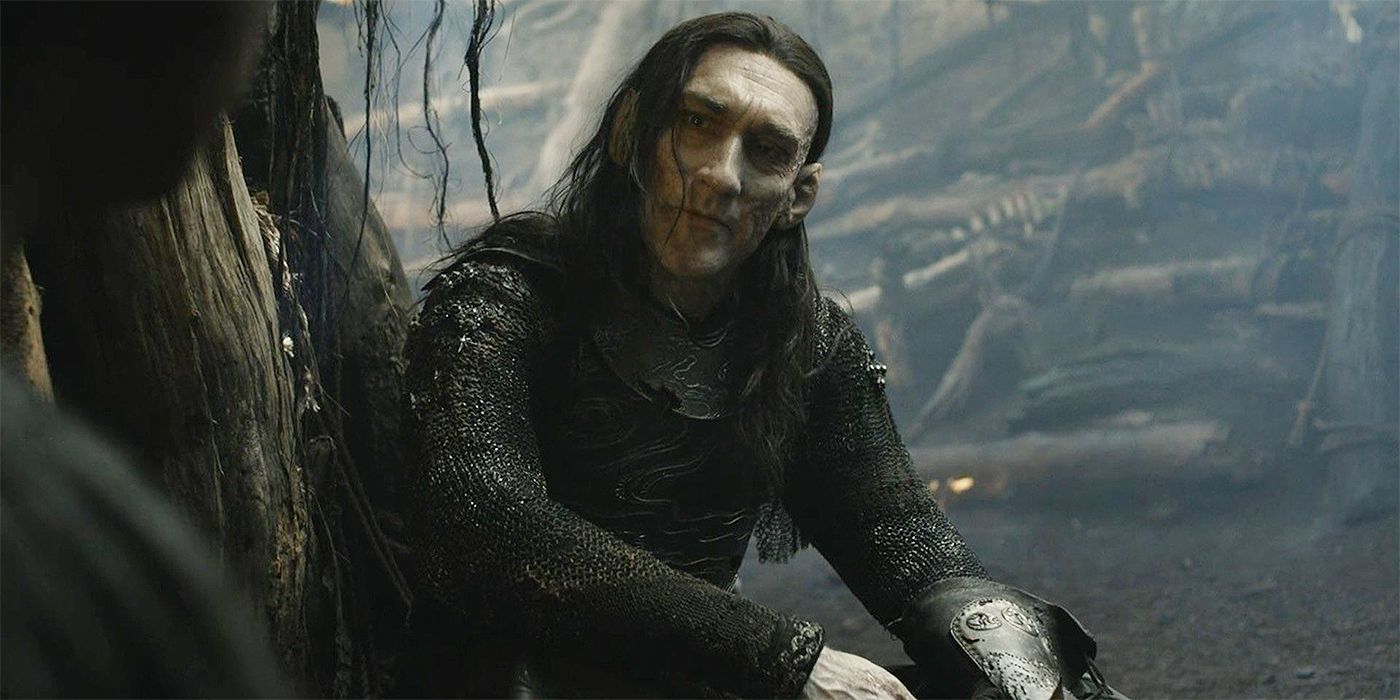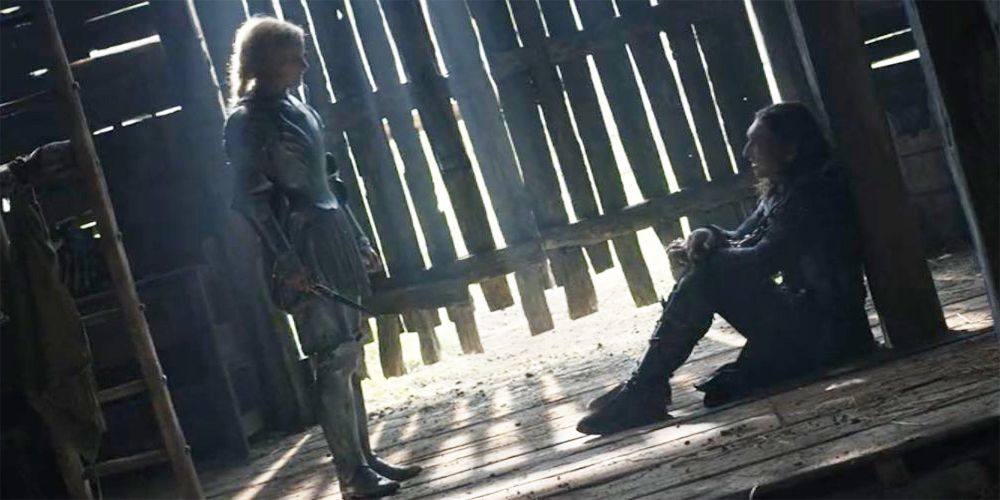Editor's Note: The following contains spoilers for Episodes 1-6 of The Rings of Power.In what has turned out to be the most action-packed episode of The Lord of the Rings: The Rings of Power to date, Episode 6 focused primarily on just one storyline, bringing audiences a collision between the hosts of the orcs and Southlanders where the Númenoreans sweep in to save the day. Despite the heavy dose of action sequences, though, a number of smaller moments brought some interesting reveals along with them as new details came to light — while an entire land was swallowed in darkness.
The Title is an Easter Egg, Yet Again
Episode 6 is entitled “Udûn,” which actually works as a reference to several things in Tolkien’s world. Most directly, it is a name for an area of Mordor, which makes sense as the Southlands storyline takes place in that area of the map. However, it is also a Sindarin name, meaning “the dark pit,” and was once used as a name for Morgoth’s stronghold of Utumno. Overall, though, in addition to being a geographical name, it is an apt descriptor for the action of the plot: the episode gives us an origin story of sorts for the “dark pit” of Mordor that came about from the eruption of Mount Doom and the darkening of the skies.
The Language Choices Foreshadow the Future
In addition to the word “udûn,” there are a few interesting uses of different languages in the episode. While elves have been seen to speak in Quenya at various points in the series so far, Episode 6 incorporated the other elvish language, Sindarin, into the series for the first time. Curiously, the context of its introduction is that it is repeatedly spoken to horses in the episode, for reasons that are unclear. Galadriel (Morfydd Clark), however, at one point urges her horse on by calling out “noro lim,” which means “run swift” and was a phrase used by Glorfindel to encourage the horse Asfaloth when Frodo was escaping the Black Riders in The Fellowship of the Ring book. The Jackson films also picked this up, as Arwen repeats Glorfindel’s line in the equivalent scene in the film.
The “Ered Mithrin” mentioned by Adar (Joseph Mawle) in his speech at the beginning of the episode is a reference to the Grey Mountains in the north of Middle-earth, which connect with the range of the Misty Mountains at the point of Mount Gundabad. While Adar uses the term as an expression of how far they have traveled to reach Ostirith, Mount Gundabad was originally a haven of the dwarves that was eventually overrun by Sauron’s forces in the Second Age. It is unclear if this event is yet to come, but the Ered Mithrin and Mount Gundabad are appropriate places for orcs to have traveled and be found in the history of Tolkien’s world.
Perhaps the most interesting reference to the future in the language of the episode, though, is a comment made by one of the orcs. As Adar’s crew searches the apparently abandoned tower, one of the orcs shouts out “gimbatul” as an order to find the defenders. “Gimbatul” is a word in Black Speech, which is a language devised by Sauron himself, according to Tolkien, some time in the Second Age. The fact that orcs are speaking it at all is an interesting comment on the influence that Sauron has over them and curiously would seem to suggest that Sauron has had a recent impact upon them if a language he created in the Second Age is being spoken by the orcs not too long after its creation — despite what Adar might say (or even think) about “killing” Sauron.
The word “gimbatul” itself, though, means “to find them,” and is most famous for being part of the Ring Poem in Black Speech in the future: “Ash nazg durbatulûk, ash nazg gimbatul, ash nazg thrakatulûk, agh burzum-ishi krimpatul” (“One Ring to rule them all, One Ring to find them, One Ring to bring them all, and in the darkness bind them”).
The Valar Keep Showing Up
One of the more beautifully-done elements of the episode was the staging of the tradition around the alfirin seeds, which grow into the flowers seen on the graves of Rohan’s kings in The Two Towers. Arondir explains that it is an elvish tradition to plant the seeds before a battle, and that it is believed that one of the Valar watches over all growing things. The Valië in question is Yavanna, who is responsible for the creation of the ents and the Two Trees of Valinor. The emphasis on trees in the series has been a significant part of the plot so far, as the health of the tree of Lindon is in peril, and the eruption of the mountain spells doom for the growing things in what will become the land of Mordor. Adar himself takes part in this tradition, planting the seeds in secret before he marches on the tower.
Sauron Actually Did Repent Once… Sort of
In the course of the fascinating and chilling conversation between Galadriel and Adar in Episode 6, Adar makes a number of seemingly impossible statements. While “killing Sauron” is certainly the top of the heap, he also makes the strange statement that after the fall of Morgoth, Sauron “devoted himself to healing Middle-earth.” While he doesn’t give much context to that statement, it does reference a moment from Middle-earth’s history. Tolkien noted in The Silmarillion that at the end of the First Age, Sauron actually did (at least seemingly) repent of his evil and tried to change his ways. However, when he was asked to present himself in Valinor to face judgment for his crimes, he fled and went into hiding, later reemerging to continue in his old ways. For a moment in history, though, Sauron may actually have tried to atone for his wicked deeds.
The Secret Fire
Later on in the same conversation, Adar challenges Galadriel on the nature of orcs, saying “we are creations of The One, Master of the Secret Fire, the same as you.” While Galadriel refuses to accept this, Adar clearly has a point. Adar himself is an elf and so has a similar nature to Galadriel, but he taps into an extremely complex problem in Tolkien’s writings: the origin of the orcs. What Adar reminds Galadriel of is not incidental: the “secret fire” that he mentions is also known as the “Flame Imperishable,” and it is essentially the principle of life or even the soul. It is the reason that all things in Creation exist, and all living things have their life because of the Flame Imperishable. It was a power that Melkor/Morgoth greatly desired but never possessed, and he was never able to actually create life himself, but only corrupt it. What Adar is saying is that even the orcs have life, and so are kindled by the Flame Imperishable as well, just as all other living things are. It is a difficult moment that the episode introduces without giving any easy answer, but Adar clearly makes his point.

